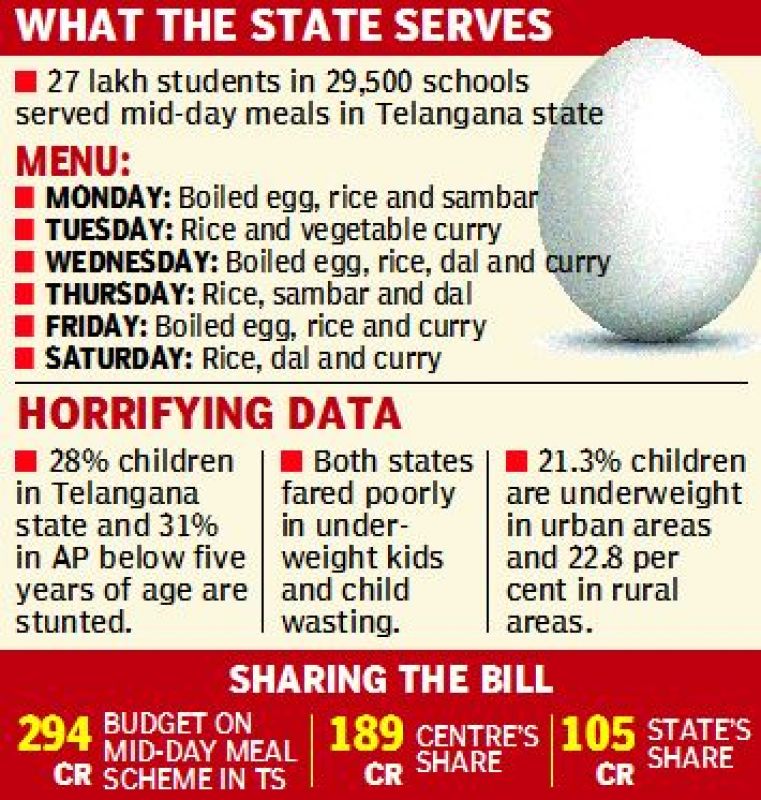Healthy mid-day meal a far cry

Hyderabad: The Supreme Court had ordered way back in 2001 that students in government schools across the country should be provided mid-day meals. Sixteen years later, data released by the International Food Policy Research Institute (IFPRI) showed that India stood at the 110th spot in the Global Hunger Index, and had slipped 45 rungs in three years. The poor ranking highlights the undernourishment in children, mortality, wasting and stunting.
While governments do provide mid-day meals, it is far from balanced. The government allots '6.18 per student per day — which does not fetch a cup of tea even with a roadside eatery. The prices of vegetables and pulses have soared, making it difficult for self-help groups to provide a balance diet to children at that price.
Linking the Aadhaar card with mid-day meals has resulted in children of migrant workers and labourers to lose school admission and even the meal facility. The government claims that duplication and fake enrolments have been checked with Aadhaar, but a few sections have been badly hit
In Telangana state alone, Aadhaar seeding resulted in the number of students availing mid-day meals fell by one lakh to 27 lakh, according to Mr Chava Ravi of the United Teachers Federation-Telangana state.

“The government is providing rice but the fluctuating prices of vegetables and pulses are not helping the cause. Whenever tur dal price increases, sambar will be diluted with water. Toma-toes, carrots and other vegetables cannot be made part of preparations if prices rise. The cost per meal sho-uld be increased,” said a me-mber of a self help group that prepares mid-day meals. The TS mid-day meal does have a positive point — the provision of three boiled eggs per week to each student. The government also provides sanna biyam (fine rice) for the mid-day meals.
Mr K. Venugopal, a retired headmaster, said that in states like Kerala local bodies contribute to the mid-day meal scheme.
“We toured few places in Kerala and found that mu-nicipality serves 250 ml milk to every student every day. A milk van comes to school around 3 pm and hands over a few cans of boiled milk. When the school closes, children are served milk. This should be implemented in the state to boost the nutrition level,” he said.

